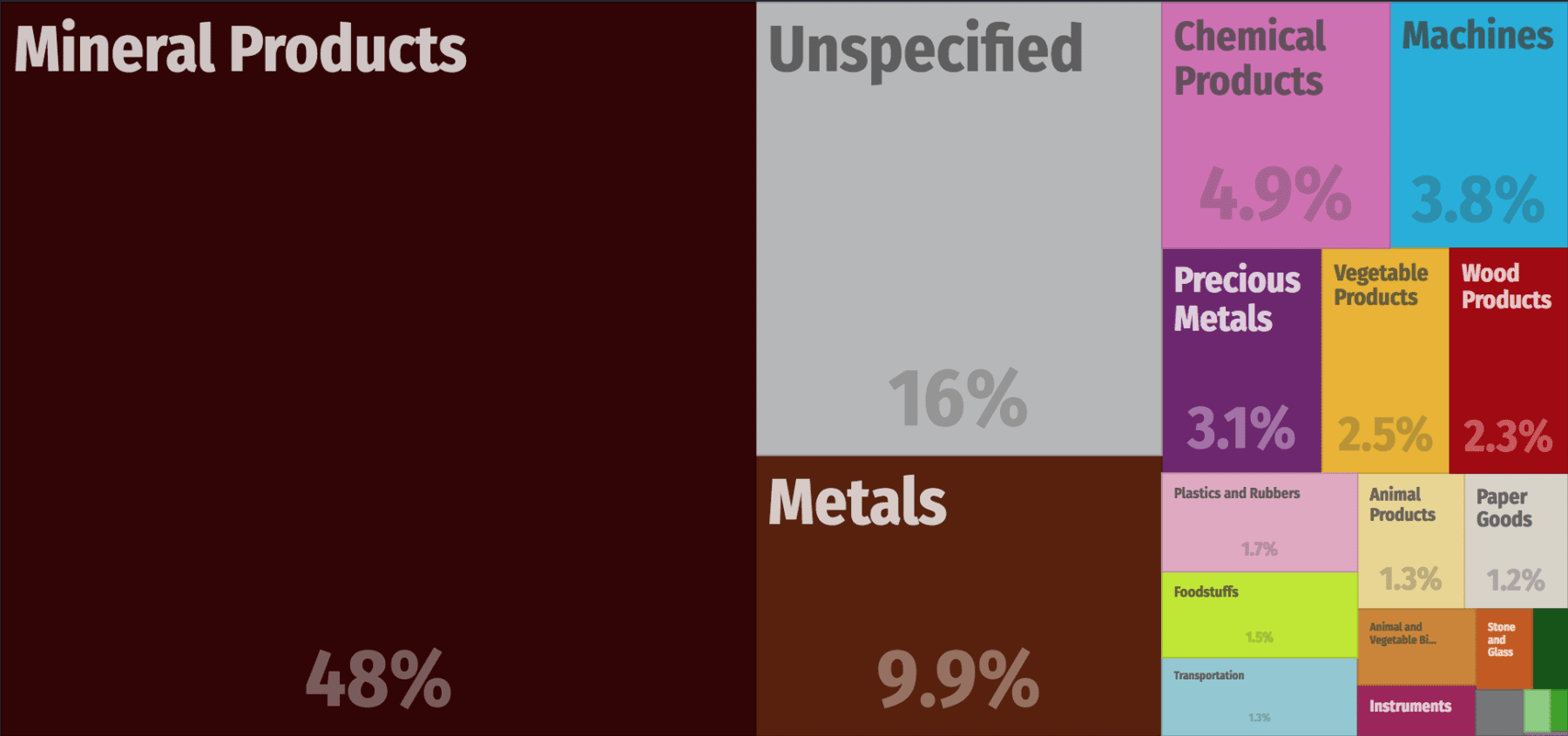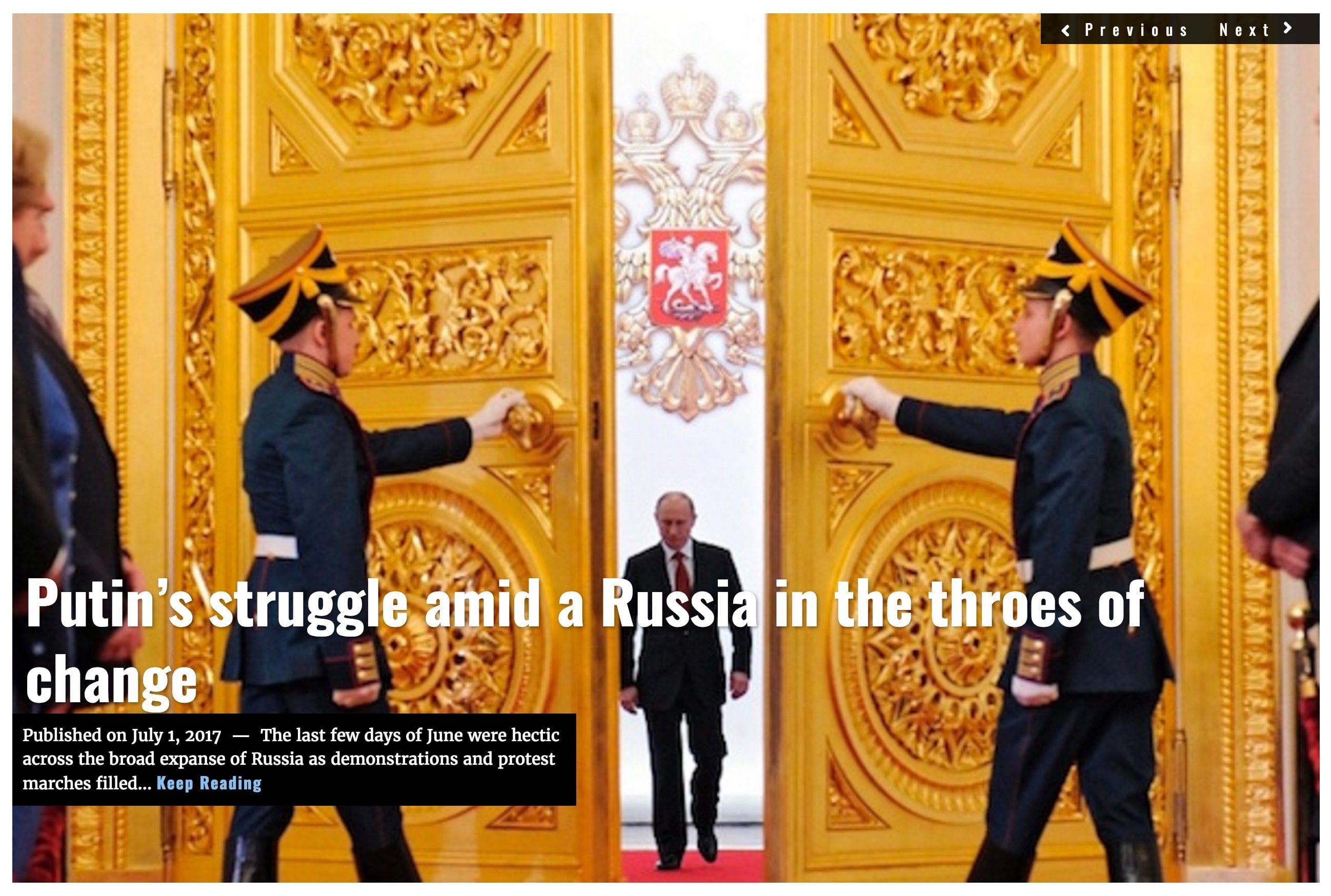Lima Charlie Business | Russia
As 2017 comes to a close, Russia will have attained positive growth for the first time in two years, signaling the end of its economic depression. Placing this malaise behind them, the Russians are preparing for another milestone, the re-election of Russian President Vladimir Putin in March 2018.
Putin’s re-election is effectively certain, especially because on December 26th, Alexei Navalny, an opposition leader hailed by the international press as the most credible alternative to Putin, was banned from participating in the elections. Although there are other candidates, they are largely dismissed.

“He (Putin) can afford to take a nap, rumbling, stretching his huge claws and opening one eye on his striped muzzle,” said Alexander Nevzorov, a TV journalist, according to the Financial Times. “He can afford to watch different political mice dance in front of him.”
In 2014 global oil prices dropped by 50%, kicking two years of negative growth for Russia. Russia’s GDP reached 1.7% growth in 2017, which is a modest number relative to the 7%-10% growth during Putin’s first two terms (2000-2008). Although not at their previous levels, oil prices have made gains since 2015 when they bottomed out.
Aside from the upturn in oil prices there are other reasons to be optimistic about Russian Growth. Seeking to counter recession, the Russian government has embarked on major spending programs.
One such program is a Trans-Siberian gas pipeline. In July 2017, China signed an agreement to use the pipeline to receive Russian gas starting in 2019. To link the recently annexed Crimea peninsula with the Russian mainland, the Russians are constructing a two mile bridge.
Finally, Russia has embarked on a program to replace aging Soviet era infrastructure and housing in Moscow, which was kicked off by what may have the largest demolition project in human history. This program has been a double edged sword, with protests being spurred by the plans to demolish the homes of 2 million people.

There have also been shifts in Russia’s institutions over the last year.
Russia’s central bank has brought inflation down to 4%. During the recession inflation skyrocketed, reaching a peak of 16% in 2015. Additionally, the Russian Central Bank nationalized the country’s two largest lending institutions last year.
As inflation cut into the ruble’s value, a major concern for the Russian economy was its reserves of foreign currency, which declined even lower following the 2008 financial crash. Seeking to kill two birds with one stone, Russia emulated a reform pioneered by Norway, and mandated the flow of oil revenue be used to replenish Russia’s foreign currency reserves. Not only would this help the reserves recover, but the siphoning of oil funds would theoretically insulate the economy from future oil price fluctuation by diversifying the economy.

Yet, for all of these changes, there is an expectation of bigger changes to be announced following the 2018 elections. Not only because it will mark Putin’s final term in office, but also because of substantial turnover in high level personnel this year.
In September of this year, nearly a dozen governors were fired or announced their resignations following a spate of resignations earlier in the year. These appointments were sold to the Russian people as a revitalization of Russia’s government with young blood. For example, during a nine-month training program for top officials, several of these governors jumped off of a 23-ft cliff:
“The trainees descended the mountain river, overcoming various obstacles, with jumping off a cliff among them … It was a test of people’s behavior in stressful situations,” explained the press service of the Russian Presidential Academy of National Economy and Public Administration.
One year ago, a new economy minister was appointed, 35 year old Maxim Oreshkin. In the year since taking office, Oreshkin has become a new favorite of Putin, according to the international press. Oreshkin has been on-boarding new staff over the last year, poaching talent from Citigroup, PricewaterhouseCoopers, and McKinsey & Co.
“A key task is to attract strong personalities and create the environment for them to develop,” said Oreshkin to Bloomberg.
The object of these shifts is to attract investment, a point that Putin hammered home with a policy announcement on Christmas. He announced that Russia should scrap a 13 percent profit tax on capital transferred to Russia from abroad and extend an amnesty on penalties for Russian businesses which fled during the 2014 crash.
It is highly difficult to accurately predict what the Russian president will do after the elections, which are scheduled for the 4th anniversary of the annexation of Crimea. This unpredictability is largely due to the high opacity of the Russian state, and the fact that the specific details of upcoming U.S. sanctions have yet to be determined.
[Title Image by http://en.putin.kremlin.ru]
LIMA CHARLIE NEWS, with Diego Lynch
Lima Charlie provides global news, insight & analysis by military veterans and service members Worldwide.
For up-to-date news, please follow us on twitter at @LimaCharlieNews
In case you missed it:

![Image Russia’s recession ends as Putin prepares for another term [Image by http://en.putin.kremlin.r]](https://limacharlienews.com/wp-content/uploads/2017/12/Putin.jpg)

![Image Putin squashes main political opponent, but at what cost? [AFP/Andrey BORODULIN]](https://limacharlienews.com/wp-content/uploads/2017/12/Putin-squashes-main-political-opponent-but-at-what-cost-480x384.jpg)

![Africa’s Elections | In Malawi, food, land, corruption dominate [Lima Charlie News]](https://limacharlienews.com/wp-content/uploads/2019/06/Malawi-election-Food-land-corruption-480x384.jpg)
![Syria’s oil, gas and water - the Immiscible Solution to the War in Syria [Lima Charlie News][Photo: ANDREE KAISER / MCT]](https://limacharlienews.com/wp-content/uploads/2019/05/Syria’s-oil-gas-and-water-480x384.png)
![Image The Rwandan Jewel - Peacekeepers, Conflict Minerals and Lots of Foreign Aid [Lima Charlie World]](https://limacharlienews.com/wp-content/uploads/2019/03/Rwanda-Jewel-480x384.jpg)
![Image Russia's energy divides Europe [Lima Charlie News]](https://limacharlienews.com/wp-content/uploads/2019/03/Russias-energy-divides-Europe-Lima-Charlie-News-480x384.png)
![Image Putin squashes main political opponent, but at what cost? [AFP/Andrey BORODULIN]](https://limacharlienews.com/wp-content/uploads/2017/12/Putin-squashes-main-political-opponent-but-at-what-cost-150x100.jpg)